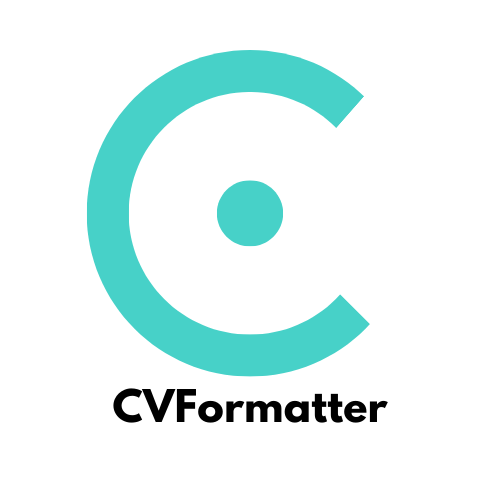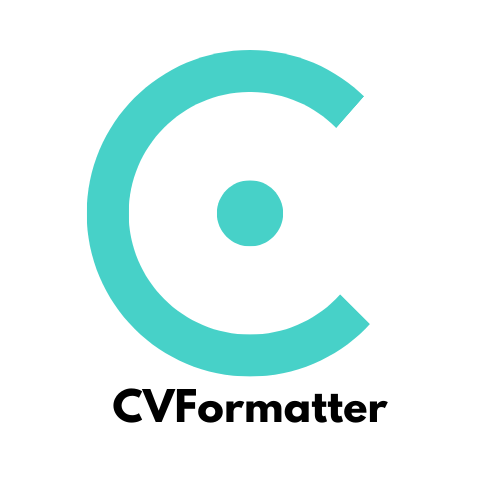The Ultimate Guide to Candidate Presentation in 2025

In 2025, how candidates present themselves is very important for effective candidate presentation. AI tools and skill tests are changing how hiring works. Employers care more about skills than degrees now. About 92% value soft skills as much or more than hard skills. Learning good presentation skills helps you shine in this tech-heavy world.
Key Takeaways
Show yourself clearly and professionally. Use easy headings and bullet points in your resume to catch attention fast.
Change your resume for every job you apply for. Add words from the job ad to prove you match the role.
Use technology like AI tools to improve your resume. These tools can help add key words and make you stand out.
Understanding Candidate Presentation
What is Candidate Presentation?
Candidate presentation means showing your skills, experience, and personality to employers. It includes your résumé, cover letter, online profiles, and interviews. By 2025, about 80% of people will use AI to create résumés and cover letters. This makes it harder for employers to know what’s real. Old-fashioned CVs are not enough anymore. Employers now use skill tests and tasks to check creativity and problem-solving.
Why Candidate Presentation Matters in 2025
In 2025, presenting yourself well is key to getting noticed. Employers care more about skills than degrees. They want to see how you handle real-life tasks, like working with a team or talking to clients. A good presentation shows you are ready and professional. It also proves you fit the company’s needs. Since AI makes applications look similar, being real and unique is even more important.
Personal Branding: A Big Part of Presentation
Personal branding is how you show your value to employers. It includes your online profiles, work samples, and how you act in interviews. A strong brand makes you stand out and builds trust. Websites like LinkedIn help you share your skills and connect with others. By creating a clear and honest personal brand, you can show you’re the best choice for the job you want.
Key Parts of a Great Resume Presentation
Organizing Your Resume Clearly
A good resume gets noticed fast. Recruiters spend under a minute looking at resumes, so it must be clear. Use simple headings, bullet points, and short sentences to make it easy to read. Start with your contact details, then add a summary, skills, work history, and education. Keep it one page unless you have lots of experience.
Studies show 83% of recruiters prefer well-organized resumes. About 68% might reject messy ones. The table below shows how listing achievements by job field can make your resume stand out:
Job Field | Example Achievement |
|---|---|
Sales | Improved product display, boosting customer interest by 25% and sales by 10%. |
Data Analysis | Used charts to show sales trends, cutting costs by 10%. |
Marketing | Created a social media plan that grew web visits by 40% and online sales by 15%. |
Making Your Resume Look Nice
How your resume looks is very important. A neat, professional design helps it stand out. Use matching fonts, good spacing, and a balanced layout. Don’t use too many colors or make it messy. Most hiring managers like clean resumes, with 73% saying it affects their choice.
Here’s a chart showing how resume designs affect hiring decisions:
Changing Your Resume for Each Job
Adjusting your resume for every job makes it stronger. Add keywords from the job ad and focus on your best results. For example, if applying for marketing, mention something like "grew web traffic by 40%."
Recruiters spend less than a minute on resumes, so changes matter. Follow these steps:
Use bullet points to keep it simple.
Show results with numbers.
Match your skills to the job ad.
By tailoring your resume, you show you understand the job and are a great fit.
Using Technology to Improve Candidate Presentation
AI Tools to Improve Resumes
AI tools have changed how resumes are improved. These tools study job ads and add important keywords to your resume. This helps you get noticed by employers. For example, using the right keywords can increase callback chances. People with weak LinkedIn profiles only get callbacks 7.2% of the time. This shows why AI is helpful for fixing resumes. Recruiters also like seeing awards, but only 1 in 10 care about them.
AI tools also solve a big hiring problem—finding skilled workers. About 75% of US recruiters say this is hard. AI helps match your resume to job needs, showing your skills better. The chart below shows how AI makes resumes more effective:
Websites for Personal Branding
Online platforms are key for building your personal brand. A good online profile helps you stand out in a crowded job market. Sites like LinkedIn let you show your skills and personality. Sharing work projects or industry tips can impress employers. Personal branding builds trust and shows you are dependable and skilled.
Social Media’s Importance in Candidate Presentation
Social media is now a strong tool for job seekers. Platforms like Twitter and Instagram let you share your career story and connect with experts. By updating your profiles to match your goals, you can attract employers. Social media also helps you follow trends and show your knowledge. A good social media profile adds to your resume and improves your overall presentation.
Personal Presentation Tips for Interviews
Communication Skills That Impress
Good communication can make you stand out in interviews. Match your answers to the job and company. This shows you’ve prepared and care about the role. Employers like when answers fit their goals and values.
Here are ways to improve communication:
Speak clearly and with confidence. Don’t say “um” or “uh.”
Listen carefully to questions. Answer thoughtfully and stay on topic.
Ask smart questions about the job or company to show interest.
Being sincere and focused leaves a great impression. It shows you’re professional and excited about the job.
Mastering Body Language
Your body language says a lot during interviews. Looking people in the eye shows confidence and builds trust. Studies say 85% of people think eye contact is important in business. Smiling makes you seem friendly and positive.
To improve body language:
Sit up straight. Don’t slouch, as it looks unconfident.
Use hand gestures naturally to highlight key ideas.
Nod sometimes to show you’re paying attention.
These small actions can change how interviewers see you.
Building Confidence for Success
Confidence helps you do well in interviews. Start by thinking positively about your skills. Focus on how they match the job. Practice answering common questions to feel ready.
Try these tips:
Practice speaking without reading from notes.
Stay positive when talking about challenges. Share how you solved them.
End answers with a strong point to be memorable.
Confidence grows with practice. The more you prepare, the more comfortable you’ll feel.
Adapting Candidate Presentation to Different Audiences
Adjusting for Specific Jobs
Changing how you present yourself for each job helps. Every job needs different skills, so focus on what fits. Show the abilities and experiences that match the role. For example, if applying as a data analyst, talk about reading data and finding solutions.
Use words your audience understands.
Add visuals like charts to explain tough ideas.
Share examples that link your work to the job.
These tips make you stand out and prove you know the job.
Matching Industry Standards
Each industry has its own rules and needs. Matching your presentation to these shows you’re prepared. For example, creative jobs may want portfolios, while tech jobs look for certifications.
Fact/Insight | Explanation |
|---|---|
Because of unmet expectations, showing why alignment matters. | |
Job ads often exaggerate | This can cause unhappiness and people leaving jobs. |
Clear job descriptions matter | Avoiding vague ads helps meet worker expectations. |
By following industry standards, you show you’re professional and understand the field.
Learning About Company Culture
Knowing a company’s culture helps you fit in better. Look up their mission, values, and recent work. Use this to show how your goals match theirs. For example, if they value creativity, share times you solved problems in new ways.
Showing you understand their culture builds trust. It also helps you connect with interviewers and makes them remember you.
Future Trends in Candidate Presentation
The Rise of Video Resumes
Video resumes are a new way to show your skills. They let you add a personal touch beyond regular resumes. Recruiters now care more about skills than other factors. About 75% focus on skills and abilities. Also, 53% of job seekers use video resumes to stand out.
The table below shows how video resumes affect hiring:
Statistic | Value |
|---|---|
Recruiters focusing on skills and abilities | 75% |
Employers using Applicant Tracking Systems (ATS) | 64% |
Job seekers making video resumes | 53% |
Video resumes also show how well you communicate and think creatively. A short, interesting video can make recruiters remember you.
AI-Driven Assessments in Recruitment
AI tools are changing how companies pick candidates. These tools make hiring fairer by hiding details like gender or age. AI-based tests can predict job success 60% better.
Experts suggest using both AI and human judgment for hiring. This mix helps make better and fairer decisions.
The Growing Emphasis on Soft Skills
Soft skills, like emotional intelligence (EQ), are now very important. Companies value EQ for teamwork and workplace success. Many now use EQ tests when hiring.
The World Economic Forum lists EQ as a top 10 skill for the future. Employers know good people skills improve teamwork and results.
Key Point | Description |
|---|---|
Emotional Intelligence | Important for teamwork and success, valued like technical skills. |
Role in Hiring | Companies now use EQ tests in hiring. |
World Economic Forum Insight | EQ is a top 10 skill for future jobs. |
By following these trends, you can prepare for future hiring and stand out.
Being great at presenting yourself in 2025 helps you get noticed in a tough job market. Show your skills and match your presentation to company needs.
Organize your presentation to show your best abilities.
Make hard ideas simple but keep the main point clear.
Be flexible and use new tools to do well.


